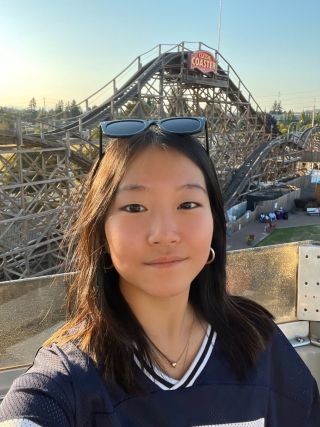
Source: Pixabay/Pexels
As an academic discipline, psychology is quite vast. At the same time, people of all education levels are drawn to the field, given psychology’s relevance for everyday living.
Against the backdrop of this reality, as someone who has reached the “end” of my education in psychology (i.e., I have my doctorate in psychology), I find it enlightening and invigorating to converse with someone who is just starting their education in the field (e.g., enrolled in an Introduction to Psychology course). One of the many benefits of such a conversation is for me to see how the next generation of students perceive psychology and its applications for things that matter the most to them.
My 9th-grade daughter Alyssa is currently enrolled in AP Psychology, which is her first exposure to psychology (other than the mini “lectures” she receives from me at home). We decided to jot down our conversation about how she is experiencing and processing the AP Psychology course. We share our dialogue with Psychology Today readers who might be interested in the teaching and learning of psychology.
Paul: You are taking AP Psychology this semester. This is your first psychology course. What has been surprising to you about this class?
Alyssa: One initial surprise was the amount of anatomical science involved in the workings of the brain. Concepts such as neurons firing and parts of the brain were also simultaneously being taught in my biology class. It was fascinating to see how much of psychology is based on the universal structure of the body. The biological factors we all share are the birthplace of every human’s unique personality and approach to life.
Paul: That’s great that you can already see how psychology is connected to other disciplines like biology. Yes, like you said, it is so important to connect what we do and how we feel with the biological underpinnings. I am so glad you are drawing those connections! Has there been a concept that you have learned about that you feel has personal relevance or application?
Alyssa: A few units back, my class covered the topic of neuroplasticity, the brain’s ability to rewire neurological pathways over time. One of the main inhibitors of neurological development is stress. I remembered the times in my life when I had a lot of schoolwork, and the stress caused me to feel like I couldn’t do anything about it. But now, in similar situations, I feel confident in my ability to manage school work appropriately. That’s because of my brain’s ability to rewire its mechanisms following a challenging event.
Paul: Wow, that’s such a neat application. It sounds to me like learning about psychology gives you hope and confidence about the future, even if the future might sometimes involve challenging things! In your psychology course, what method is most helpful for your learning of psychological concepts? Could you give an example based on your classroom experience?
Alyssa: My AP Psych teacher gives us a wide range of study materials. Among these, I find the video studies most memorable.
For example, we watched this video of a case study experiment by Mike Gazzaniga that showed the function of the corpus callosum. It featured a patient who had his corpus callosum severed to treat his epilepsy. The patient, identified as “Joe,” could not recognize an image shown to the left hemisphere of his brain until he drew it on paper. This was due to the lack of communication between the two sides of the brain as a result of the severed corpus callosum. The video helped me deepen my learning about the brain.
Paul: That’s great. I am sure you will see many more videos of fascinating psychological concepts as you progress in your course. As you anticipate the rest of your year in AP Psych, what question(s) do you have about psychology? That is, what do you wonder about that might eventually be answered in your class?
Alyssa: I hope to learn more about the different psychological disorders. I decided to take this class because of my interest in psychological disorders. Some of my questions include: Does everyone experience different levels of psychopathy? Do some mental illnesses only exist in certain parts of the world? Can you be born with a psychological disorder? Does media portrayal of mental illnesses help people diagnose themselves accurately?
Education Essential Reads
Paul: Excellent questions! I hope that you get those questions answered. Last question: for those students who are unsure about taking a psychology class for the first time, what advice might you have?
Alyssa: Definitely take it! I have found that psychology offers so many compelling topics and themes—there is something for everyone.

Alyssa Kim
Source: Alyssa Kim
Co-author bio: Alyssa Kim is a 9th-grade student currently enrolled in AP Psychology.
